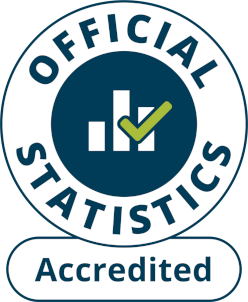Vocational and other qualifications quarterly: April to June 2020
Statistics on vocational and other qualifications (excluding GCSEs, AS levels and A levels).
Applies to England
Documents
Details
Main trends for quarter 2 2020
-
The number of certificates awarded in 2020 quarter 2 was just over 367,000 certificates, a decrease of 74% compared to 2019 quarter 2. Restrictions due to the coronavirus (COVID-19) pandemic will have had a major impact, but there may also be other less influential factors at play.
-
Decreases in the number of certificates awarded were seen across nearly all qualification types and levels.
-
There were notable decreases in the number of certificates awarded in most sector subject areas, with the largest decreases seen for Preparation for Life and Work, Construction, Planning, Health, Public Services and Care, and Arts, Media and Publishing.
-
The qualification with the highest number of certificates in Q2 2020 was NCFE’s CACHE Level 2 Certificate in Understanding Children and Young People’s Mental Health, which had the ninth highest number of certificates in Q2 2019. This was followed by the TCL Entry Level Certificate in ESOL International Speaking and Listening (Entry 3) (GESE Grade 5) (B1.1), which had the third highest number of certificates in Q2 2019.
-
The awarding organisation with the highest number of certificates issued in this quarter was City and Guilds, followed by NCFE and Pearson. Over the whole year, Pearson had the highest number of certificates issued, followed by City and Guilds and NCFE.
-
In Q2 2020, City and Guilds saw an 68% decrease in the number of certificates awarded compared to Q2 2019, but remained the awarding organisation with the highest number of certificates issued in Q2 this year. Nearly all other awarding organisations saw decreases in the number of certificates issued in Q2 2020 compared to Q2 2019.
-
On 18 March 2020, the Secretary of State for Education announced that exams in schools and colleges due to take place in summer 2020 would be cancelled in order to help fight the spread of coronavirus (COVID-19). On 9 April we received a direction from the Secretary of State which set out how the Government expected vocational and technical qualifications, and general qualifications other than GCSE, AS and A levels, Extended Project Qualifications and Advanced Extension Awards in maths to be assessed and awarded in the coming weeks and months. This direction said that learners taking vocational and technical qualifications that are used for progression to and through employment, as well as further or higher education, should receive results where possible this summer, in order to allow them to progress to the next stage of their lives. For qualifications principally used for progression purposes, awarding organisations should issue calculated results to learners, where it was possible to do so, whilst ensuring that those awards were sufficiently valid and reliable. Where this was not possible, awarding organisations should adapt assessments or delivery models so that learners could sit assessments and complete their qualifications. Where qualifications directly signal occupational competence or function as a licence to practise, adaptation of the assessment or delivery model was the starting point. In cases where it would not be safe or meet employers’ requirements to calculate results or adapt assessments or delivery models, there may be no option but for learners to wait until assessments could take place as normal again. Ofqual consulted on proposals for exceptional arrangements for VTQ grading and assessment in 2020, and published an extraordinary regulatory framework on 22 May 2020.
Summer and autumn 2020 Qualification Explainer tool
For information on qualifications this summer and autumn, please see our interactive tool available at Ofqual Analytics.
Datasets
The dataset used to produce this release is available separately.
Statistics collection
All our published vocational and other qualifications publications are available at a single collection page.
User feedback
We welcome your feedback on our publications. Should you have any comments on this statistical release and how to improve it to meet your needs please contact us at [email protected].
